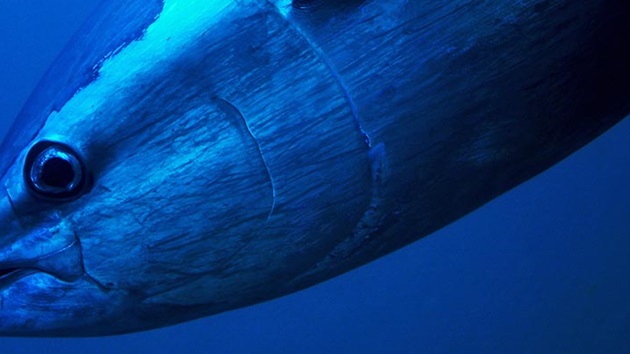Years of progress in sustainable tuna fishing in the Western Central Pacific Ocean could be undermined if progress is not made in end of year meeting on managing shared stocks.

Twenty-two tuna fisheries in the Western Central Pacific Ocean could face suspension of their certification to the Marine Stewardship Council’s Standard for sustainable fishing unless an international agreement is reached on how to set controls on catch limits between 26 countries.
Highly migratory stocks like tuna are complex to manage. They require many countries to work together to share data and agree on restrictions that their fisheries must abide by.
Without international agreement based on scientific advice on how shared stocks are managed, no individual fishery can continue to operate sustainably.
The 22 tuna fisheries were certified with conditions that the 26 member states of the Western Central Pacific Fisheries Committee (WCPFC) - the regional fisheries management organisation - must agree to measures on harvest strategies and control rules to ensure the sustainability of shared tuna stocks. This agreement has yet to be reached.
Skipjack, yellowfin and bigeye tuna stocks in the WCPO and the albacore tuna stock in the South Pacific are all managed by WCPFC.
Harvest strategies set target catch levels to guide sustainable fisheries management. Robust harvest control rules adjust catch or other limits according to the most up to date scientific assessments of stock health.
The current measures the WCPFC has in place for these fisheries to meet the MSC Standard require improvements in conditions that come with the certification. The WCPFC intends to implement these improvements for skipjack and albacore in December 2022 and one year later for yellowfin and bigeye stocks. Meeting these deadlines requires interim decisions favouring these solutions to be passed by WCPFC scientific and technical meetings and in the annual meeting in December 2021.
The rising global demand for tuna is putting increasing pressure on stocks and ecosystems. In efforts to address this, there has been a rise in tuna fisheries committing to sustainable practices, with nearly half of the global commercial tuna catch now certified to the MSC Standard, or in assessment.
Nicolas Guichoux, Chief Program Officer at the Marine Stewardship Council said:
“Responsible management is the key to sustainable fishing, and for complex fisheries like tuna, effective harvest strategies and harvest control rules play an essential role in making sure enough fish are left in the sea for them to replenish. If tuna from the WCPO is to be fished sustainably in the long term, members of the regional management agency must agree to secure these vital stock protections without delay.”
As tuna from the WCPO makes up over half of the global commercial tuna catch, and currently 73% of all MSC certified tuna comes from the region, the failure of these globally important fisheries to retain their certification could undermine years of progress towards sustainable tuna fishing.
Mr Guichoux added: “MSC certified tuna fisheries in the WCPO are world-leaders in sustainable tuna harvesting and serve as an important example of best practice to other fisheries across the globe. If an agreement on harvest control rules cannot be reached by the WCPFC then it could also send a negative signal to others striving to achieve sustainability.”
The WCPFC has until December 2022 to conclude negotiations, with interim progress needed at their next annual meeting in December 2021. Failure to do so could see all 22 certified tuna fisheries in the region, as well as an additional five currently seeking MSC certification, having their certificates suspended by independent assessors by June 2023.
Although certified sustainable tuna would still be available from other fisheries, it’s vital to keep up the momentum. Loss of certification would be a setback for these fisheries in the WCPO which have worked hard to improve their performance to meet the MSC Standard.
The transparency of independent assessment would also be lost, and progress on improvements associated with the other requirements of the Standard, such as better management of bycatch and use of fish aggregating devices, could be delayed. Tuna from these fisheries would also no longer be able to carry the MSC blue label as a trusted signifier of its sustainability credentials.
Urgent action is needed by Governments to complete the WCPFC workplans, and the MSC urges all stakeholders to contact their national representatives to ensure robust sustainability measures are reached for all Western Central Pacific Ocean tuna.

